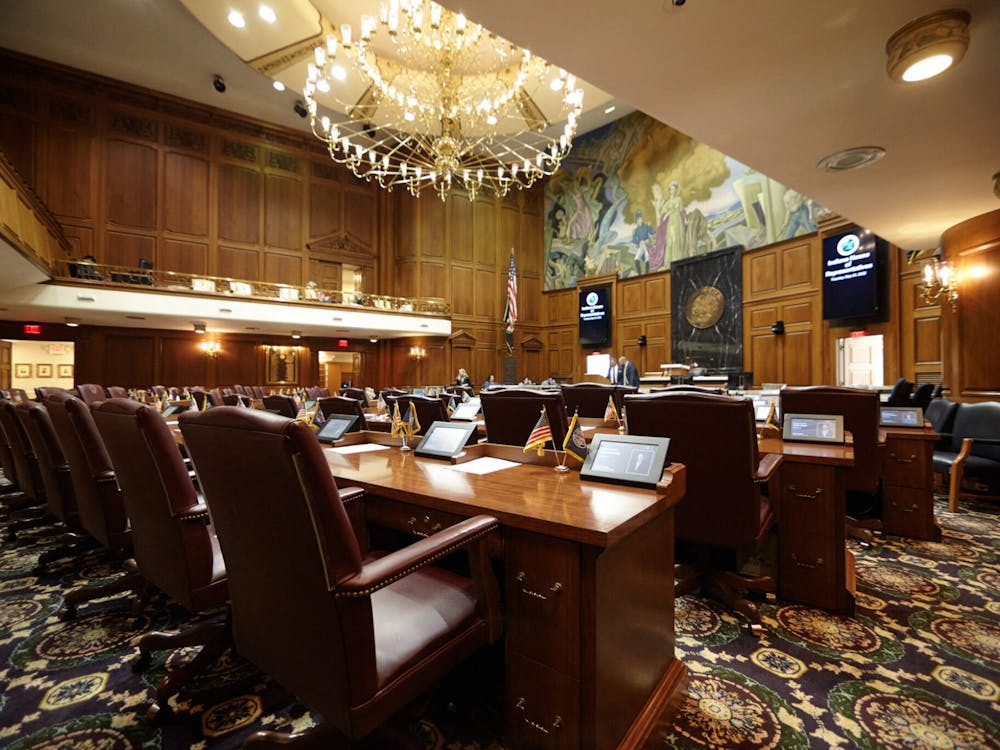This story has been updated since its original version to eliminates information that was falsely attributed.
Marijuana arrests account for only a fraction of the hundreds of alcohol and drug violations on campus, but the number appears to be climbing, and violators face serious consequences for getting high in the residence halls, university officials say.
April 20, commonly referred to as 4/20, is considered something of an unofficial pot holiday by marijuana users.
The connection comes from the term "420," which reportedly comes from the 1970s California police code for "marijuana smoking in progress." Another common belief is that it was a high school student code for "time to get high" after school.
As for Ball State, the University Police Department has handled about 50 cases for marijuana possession since January, compared to about 90 marijuana cases throughout 2010, Bob Fey, associate director of public safety, said.
"Things like that fluctuate," he said. "It seems like it's on the rise. We'll see at the end of the year."
The number of students busted with marijuana possession in residence halls has decreased, though. According to the annual Ball State crime report, there were 30 students with marijuana related arrests in the residence halls in 2008. In 2009, the most recent data, there weren't any students arrested for marijuana-related activities in the residence halls.
The crime report shows that alcohol violations outweighed marijuana violations, based on the two-year-old data. The most recent numbers show 450 liquor law violations, and only one disciplinary action for marijuana possession.
Alan Hargrave, director of Housing and Residence Life, said the answer for students who are caught with marijuana in the residence halls is basic.
"You get caught, you're out," he said.
Michael Gillilan, director of Student Rights and Community Standards, said punishment aside from an automatically canceled housing contract depends on several variables, including the amount of marijuana confiscated, the age of the student and whether it's a first offense.
Students may be required to participate in a marijuana education program and disciplinary probation, but punishments vary, Gillilan said. Underclassmen who are caught with marijuana may be asked to work for Late Nite, while upperclassmen may have to complete 20-30 hours of community service.
The only certain punishment is the no tolerance policy for students living in residence halls, Gillilan said.
"This has been our approach and procedure for many years, and it did have a noticeable effect when we first started doing it," Hargrave said. "Obviously there are some people that are willing to take the risk and get caught."
People caught with marijuana possession of an amount under 30 grams are charged with a Class A misdemeanor. Fey said that people found with more than 30 grams will be charged with a Class D felony.
Recent polls show people may be coming around to the idea of legalizing marijuana nationwide. A March poll by the Pew Research Center showed 45 percent of people surveyed were in favor of legalizing marijuana, while 50 percent opposed it. When the same survey was taken in 2000, 31 percent of people agreed with the legalization of marijuana while 63 percent opposed the legalization.
Gillilan said even though marijuana use is more accepted now, the dangers are greater than what they were in his youth.
"The marijuana is different these days than what it was when I was in college," he said. "For folks in my generation, we think about marijuana as somewhat innocuous, and that isn't the case anymore."




